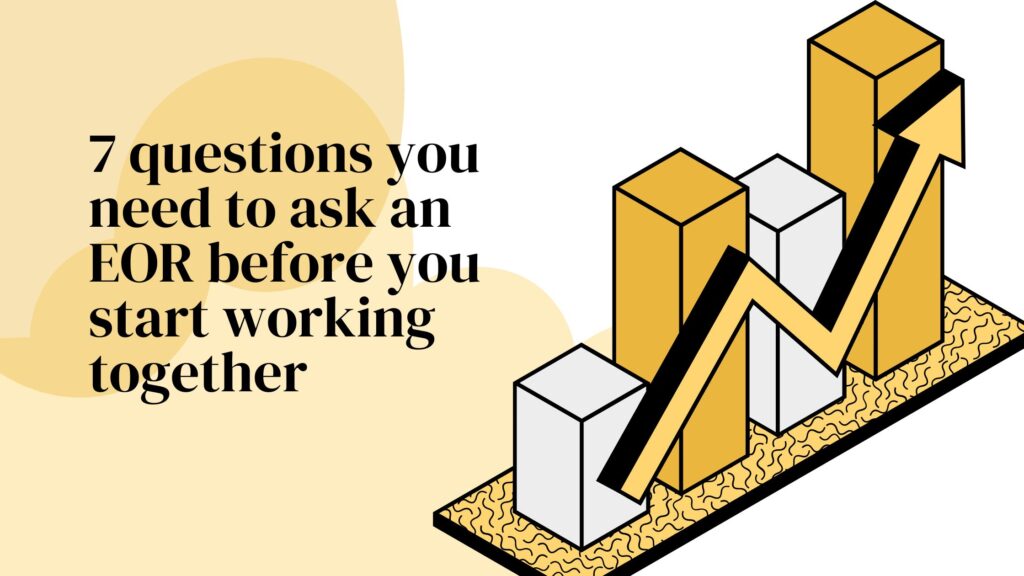1. What countries or regions do you operate in?
It may seem obvious, but it’s crucial to know if the EOR operates in the countries or regions where you plan to hire. This ensures they have the necessary expertise and infrastructure to support your recruitment efforts in those regions without the need to set up a local entity.
2. What type of workers can you support?
As not all EORs are equipped to handle every type of worker, if your recruitment business is primarily placing temporary or contract workers, you’ll want to work with an EOR that has experience in managing these types of workers. Different types of workers often have different legal and employment requirements. For example, contractors may require different tax and payment treatment than full-time employees.
3. Can you ensure compliance with all local tax regulations and employment laws?
Employment laws and regulations can be complex and vary by state and industry, especially in the US. It can be challenging for international recruiters to keep up with legislation changes and ensure compliance. If the EOR you’ll be working with is able to ensure compliance with all local tax and employment laws, you’ll be able to make placements with complete confidence. The EOR may collect all necessary compliance documentation, run compliant payroll, withhold and file local taxes, and much more.
4. Can you support the business in scaling?
If you’re looking to scale your recruitment business, it’s important that the EOR you work with is aligned with your business goals and can provide the necessary support as your business grows. The right EOR should provide some flexibility and have the ability to adapt to your evolving needs. Moreover, check if they are partners with other businesses that may be able to support you in your growth. For example, invoice factoring businesses, such as 3R, who Lead & Gain has successfully partnered with. Invoice factoring can be absolutely game changing for businesses, and especially startups who may lack sufficient funds to cover that risk. So, it’s well worth looking to find out if there are any additional services your EOR can support you with via their partner network.
5. How user-friendly is their tech platform?
A simple, user-friendly tech platform is the key to success when working with an EOR. From onboarding and offboarding to timesheets and payroll, the platform should be intuitive, allowing your team to easily access all data with ease. Most EORs should be able to provide you with a demo or an in person run through, that offers you enough information to decide whether this is the platform for you and your needs.
6. Do you offer any additional coverage for exceptional circumstances?
If you’re placing candidates in an industry with a higher risk of injury, your premium may be higher, which adds to your costs. Since not all EORs will provide that coverage, as a recruiter, it’s recommended that you work with one that can.
7. Can you provide references or case studies from recruitment companies you’ve worked with before?
Just like with any other business or service you’re considering, hearing about past experiences with other recruitment companies can provide insights into the EOR’s track record, reliability, and quality of service.
If you’d like to find out if Lead & Gain is the right Employer of Record for your business, get in touch today.



